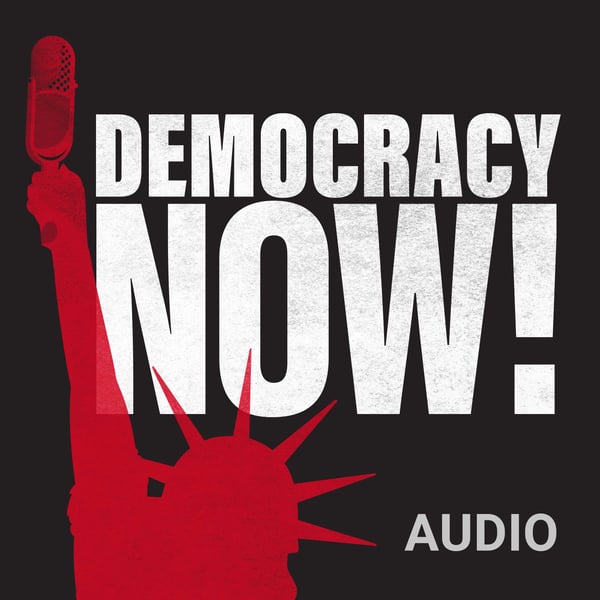"We Southernized Dr. King": Historian Jeanne Theoharis on MLK's Struggle Against Racism in the North
Democracy Now! Audio
Democracy Now!
4.8 • 5.4K Ratings
🗓️ 23 May 2025
⏱️ 29 minutes
🧾️ Download transcript
Summary
Transcript
Click on a timestamp to play from that location
| 0:00.0 | This is Democracy Now, Democracy Now.org, the War and Peace Report. |
| 0:08.2 | I'm Amy Goodman. |
| 0:09.4 | We started this week marking what would have been the 100th birthday of Malcolm X. |
| 0:16.9 | At the end of this week, we mark the fifth anniversary of the police killing of George Floyd in Minneapolis. |
| 0:24.8 | We're here for part two of our conversation with historian Gene Theo Harris, |
| 0:30.6 | whose new book, King of the North, Martin Luther King Jr.'s life of struggle outside the South |
| 0:37.3 | is a major reexamination that offers |
| 0:40.8 | a different picture of both King's own experiences of police brutality and his sustained |
| 0:47.4 | critique of police brutality in the criminal legal system in the North as well as the South. |
| 0:54.1 | We thank you so much for staying with us for this |
| 0:56.6 | part two of our conversation. So if you could, when people talk about Dr. King, I don't think |
| 1:03.3 | they think about this major struggle against police brutality. Talk about your years investigating this, well, doing this re-examination and what |
| 1:14.0 | surprised you most and then take us through a very different trajectory of his life than we're |
| 1:20.2 | used to hearing. Right. I mean, in many ways, we have southernized Dr. King, and by southernizing him, we miss both really key aspects |
| 1:30.4 | of his own life and the ways that he understands racism and segregation and police brutality, |
| 1:37.7 | not as like a southern sickness, but a national cancer. And partly that begins in his own life. First, because, as we know, |
| 1:48.3 | he goes to Morehouse for college, but then he will do his graduate work, first at Crozier |
| 1:52.9 | Seminary in Pennsylvania, and then at Boston University. And I think many of us know that vaguely, |
| 1:58.8 | but we don't think about the young man who is then living |
| 2:03.0 | in those segregated cities, going to those predominantly white institutions, and the kinds of |
| 2:09.7 | segregation that he encounters, and also the ways that he encounters the limits of northern |
| 2:15.3 | liberalism at home. And so he never not knows that. And that's true |
... |
Please login to see the full transcript.
Disclaimer: The podcast and artwork embedded on this page are from Democracy Now!, and are the property of its owner and not affiliated with or endorsed by Tapesearch.
Generated transcripts are the property of Democracy Now! and are distributed freely under the Fair Use doctrine. Transcripts generated by Tapesearch are not guaranteed to be accurate.
Copyright © Tapesearch 2025.

